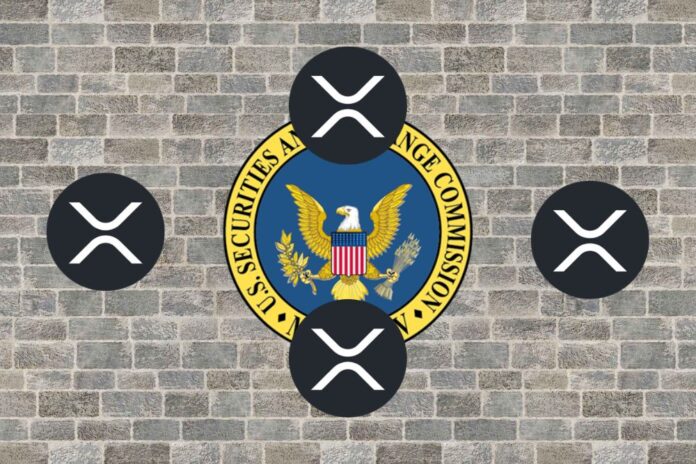The US Securities and Exchange Commission (SEC) has taken a significant step forward in its ongoing legal battle against Ripple Labs and its associated XRP cryptocurrency.
In response to Judge Analisa Torres’s recent ruling, the SEC has filed a motion for leave to proceed with an Interlocutory appeal in the Ripple ruling, signaling a new phase in the high-stakes lawsuit.
Read Also: Coinbase Cites Ripple and XRP Ruling in a Bid to Dismiss SEC Lawsuit: Details
Contrary to earlier speculation, the SEC’s appeal does not challenge the court’s decision that XRP is not a security. Instead, the agency’s focus has narrowed to a specific segment of the ruling, specifically targeting Programmatic and Other Sales, as outlined in Judge Torres’s initial judgment.
🚨NEW: The @SECGov has officially filed its motion for leave to file an interlocutory appeal in the @Ripple case. 👇🏼 pic.twitter.com/K384Cqr2kI
— Eleanor Terrett (@EleanorTerrett) August 18, 2023
Ripple now has until September 1 to respond to the motion, with the SEC permitted to reply by September 8. However, the regulatory body faces numerous challenges ahead, requiring approval from both Judge Torres and the Second Circuit Court of Appeals to proceed with the expedited appeal.
Bill Hughes, Senior Counsel at ConsenSys, noted the uphill battle the SEC faces in satisfying the legal standard necessary for success. He further emphasized how the agency’s current appeal arguments have been undermined by its past statements.
Despite the difficulties ahead, a potential approval from both courts could see a stay on all proceedings until the conclusion of the appeal, according to Dave Rodman, founder of the Rodman Law Group.
Beyond the courtroom drama, the outcome of this case holds significant implications for the wider cryptocurrency sector and its regulatory landscape. As industry stakeholders and investors eagerly await the resolution, the classification and regulation of digital assets could be shaped for years to come based on the anticipated ruling.
Read Also: Ripple Clarifies Misconceptions About XRP Ruling
The Future of Cryptocurrency Regulation
The SEC’s appeal is just one of several legal challenges facing the cryptocurrency industry. Other regulators around the world are also considering how to regulate cryptocurrencies. The outcome of these legal challenges could have a major impact on the future of cryptocurrency across the world.
The future of cryptocurrency regulation is uncertain, but it is likely that governments and financial regulators will continue to develop and implement regulations in the coming years. The specific nature of these regulations will vary from country to country, but they are likely to focus on protecting investors, mitigating risks to the financial system, and preventing illegal activities.
In addition to government regulation, there is also a growing movement toward self-regulation in the cryptocurrency industry. This is being driven by industry participants who believe that self-regulation can be more effective and efficient than government regulation. Self-regulation can also help to avoid the risk of over-regulation, which could stifle innovation.
The future of cryptocurrency regulation is likely to be a hybrid of government regulation and self-regulation. The specific balance between these two approaches will vary from country to country, but it is likely that both will play a role in regulating cryptocurrencies in the years to come.
Follow us on Twitter, Facebook, Telegram, and Google News


